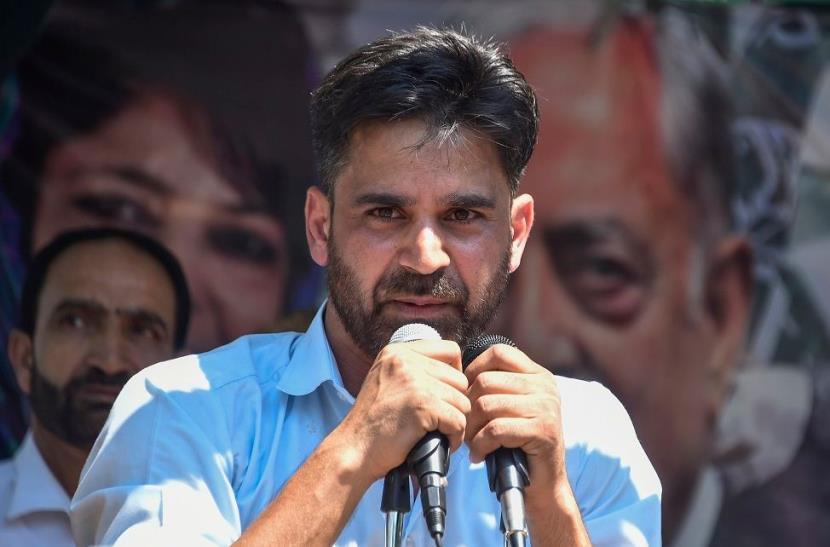Waheed Para Warns of Radicalization Over Reservation Injustice in Jammu & Kashmir | PDP Blasts NC Govt
By: Javid Amin | Srinagar | 20 June 2025
A Warning Beyond Politics
In an increasingly volatile political climate, PDP youth leader Waheed ur Rehman Para has issued a statement that cuts through bureaucratic inertia with a chilling warning—Jammu & Kashmir’s flawed reservation policy isn’t just a governance failure, but a national security risk.
Speaking amid rising discontent among Kashmir’s student and unemployed youth population, Para cautioned that continued marginalization of merit-based candidates could push an already aggrieved generation toward radicalism.
“These students have already endured violence, lockdowns, and lost opportunities. Now, as they seek fair representation, the government is pushing them further to the margins.”
The Core Issue: A Lopsided Reservation Matrix
At the center of the controversy is Jammu & Kashmir’s current reservation framework, which allocates nearly 70% of government jobs to various reserved categories, leaving a paltry 30% for open merit.
The reservation slabs include Scheduled Castes (SC), Scheduled Tribes (ST), Socially and Educationally Backward Classes (SEBC), and Residents of Backward Areas (RBA)—a setup critics say is disproportionately skewed and outdated.
According to Para:
“No one is asking for the rollback of affirmative action. But it needs to be rationalized. When 70 out of 100 seats are pre-booked by default, it kills aspiration, it kills hope.”
This sentiment is echoed across coaching centers, campuses, and civil services aspirant forums in Srinagar, Anantnag, Baramulla, and other districts.
Government Promises, Zero Delivery
In December 2024, the National Conference-led government, under pressure from growing protests, promised to review and rationalize the policy. A cabinet subcommittee was constituted and reportedly submitted its findings in March 2025.
However:
- The report remains under “legal vetting”
- No public summary has been shared
- No roadmap has been announced
This has created a trust vacuum, especially among youth who feel betrayed yet again by institutional indifference.
Political Reactions: Storm Brewing Across Parties
Para’s remarks have found resonance with opposition leaders as well:
- People’s Conference (PC) accused the government of “deliberate betrayal”
- Awami Ittehad Party (AIP) leader Er. Rashid termed it “anti-merit, anti-youth”
Even some NC insiders, speaking off the record, admitted that “bureaucratic fear of legal backlash” is stalling action—but warned that inaction is now costlier than a legal challenge.
Youth Speak Out: Boiling Frustration
On the ground, the resentment is visceral:
- “I prepared for two years. My score was 92, but I didn’t make the cut because 70% seats were out of reach,” said Aamir Khan, a UPSC aspirant from Pulwama.
- “We want justice, not sympathy,” shouted students protesting outside the Civil Secretariat last month.
For many, the reservation issue has transcended caste or religion—it is about fairness, merit, and future.
The Radicalization Risk: A Stark Warning
Waheed Para didn’t mince words when he connected reservation injustice to rising extremism:
“When the system repeatedly sidelines qualified youth, in a border region with active cross-border propaganda, it creates fertile ground for radical thought.”
His warning is backed by years of security analysis in Kashmir, where unemployment and alienation have been historically exploited by radical outfits.
Security experts are echoing similar concerns:
- “Ignored, jobless youth are easier to radicalize,” says a retired IB officer posted in J&K.
- “It’s not just about jobs, it’s about dignity and recognition.”
Legal and Constitutional Perspective
Experts argue that while affirmative action is a constitutional necessity, it must be balanced with evolving socio-economic realities:
- Justice Ranjan Kaul (Retd.), former J&K High Court judge, remarked:
“Reservation should uplift, not suffocate. The state must ensure that merit isn’t a casualty in the name of social justice.”
Legal scholars are urging a time-bound review of all reservation layers and a transparent, empirical approach to determine beneficiaries.
A Generation on the Brink
Beyond protests and politics lies a generation fast losing patience. The silence from the administration is being interpreted not as caution—but as apathy.
From Twitter spaces to campus town halls, the question being asked is: When will fairness return to the recruitment system?
The Way Forward: Recommendations from Civil Society
Civil rights groups, academic forums, and policy think tanks have proposed several solutions:
- Cap reservation at 50%, as per Supreme Court precedent
- Introduce economically weaker section (EWS) quotas to balance representation
- Create special merit pools for conflict-affected regions within Kashmir
- Launch job audits and reservation performance reports every 5 years
Bottom-Line: The Price of Delay
The reservation debate in J&K is no longer just an administrative issue. It is a moral, political, and security challenge.
Waheed Para’s cautionary words may be uncomfortable for the ruling NC, but they reflect the growing unrest that simmers across Kashmir’s educated but excluded youth.
If the government continues to delay corrective action, the cost won’t just be electoral—it may be existential.

